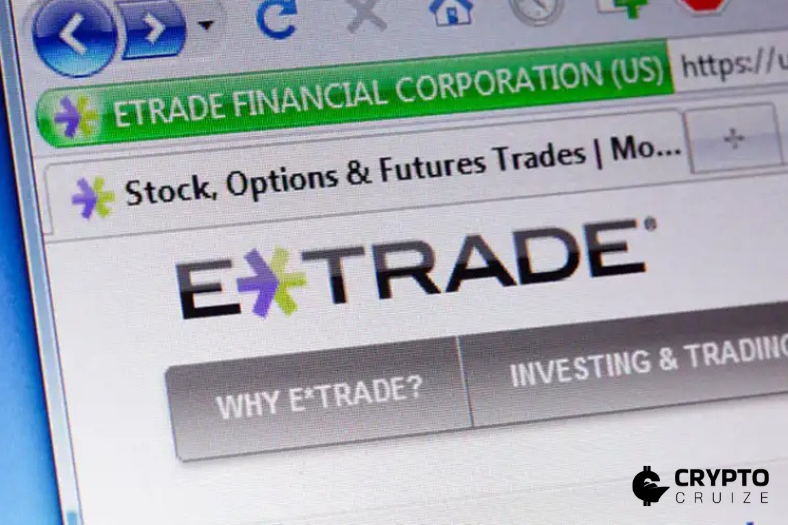Major US bank’s move could reshape competition in digital asset space
Morgan Stanley is planning to introduce cryptocurrency trading for clients of its E*Trade platform, marking the most significant move by a major US bank to offer everyday investors direct access to digital assets. The project is in its early stages, but the bank is aiming to roll out the service sometime next year, according to sources familiar with the matter.
The initiative comes as the regulatory landscape in the United States shifts under President Donald Trump’s administration, which has made significant rollbacks in crypto-related restrictions. The move could position Morgan Stanley as a serious competitor to established crypto-native platforms such as Coinbase and Robinhood.
Plans for Spot Trading and Strategic Partnerships
Morgan Stanley is reportedly considering partnerships with one or more established crypto firms to build the infrastructure necessary for spot trading of popular cryptocurrencies like Bitcoin and Ether. This would expand the bank’s current crypto offerings, which include exchange-traded funds (ETFs), options, and futures — primarily aimed at its wealthier clients.

If successful, the integration of crypto trading on E*Trade could make digital assets more accessible to mainstream retail investors and draw users away from existing exchanges. Robinhood, for example, earned $626 million from crypto trading in 2024 alone, accounting for 21% of its total revenue.
Trump’s Regulatory Shift Boosts Crypto Momentum
This push into crypto follows a dramatic change in US policy after Trump’s return to office. His administration has adopted a more favourable stance towards digital finance, encouraging regulators to support innovation and individual financial freedom.
Soon after taking office, Trump signed an executive order promoting digital assets, leading the Securities and Exchange Commission (SEC) to rescind a series of rules that had previously made it difficult for crypto firms to engage with traditional banks. More recently, both the Federal Reserve and the FDIC withdrew prior warnings about crypto-related banking risks — a move praised by industry groups like the Bank Policy Institute.
Before these changes, most major US banks had stayed away from crypto, wary of potential scandals and volatility following events like the collapse of FTX. However, the regulatory climate now appears more conducive for institutional involvement.
Growing Institutional Interest
Morgan Stanley is not alone in seizing this moment. Charles Schwab’s new CEO, Rick Wurster, has expressed interest in launching spot crypto trading as soon as the regulatory framework is fully clarified. SoFi Technologies, which withdrew from crypto in 2023, is now considering a return, citing a “fundamental shift” in the industry landscape.
Meanwhile, Bank of New York Mellon recently received a “non-objection” from the SEC for its plan to provide crypto custody services — a rare but telling sign of regulatory openness.
Even vocal crypto sceptics have softened their stance. JPMorgan Chase CEO Jamie Dimon, long a critic of Bitcoin, now defends people’s right to invest in it. The bank now collaborates with Coinbase and has launched its own blockchain-based JPM Coin.
Legitimising Crypto for Retail Investors
Morgan Stanley’s move could help legitimise crypto trading for a wider audience. The bank’s reputation, combined with tighter regulation and enhanced security, may appeal to cautious investors who have so far stayed on the sidelines. If successful, the initiative could reshape the competitive landscape and further mainstream digital assets in the US financial system.
With more institutions signalling their intent to enter the crypto market, the race to serve retail investors is heating up — and Morgan Stanley’s bold move may mark the beginning of a new era for digital finance.




















































